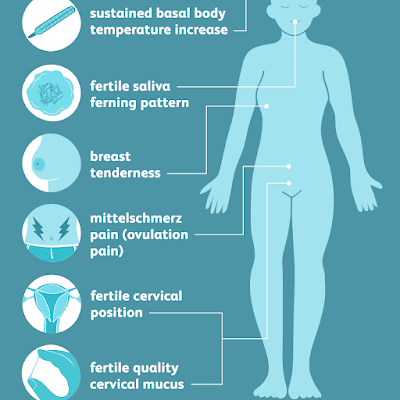NATURAL FERTILITY SIGNS
During the period of adolescence and early
adulthood, many teenagers and young adults become curious of their sexuality
and sexual preferences. They tend to experiment and engage in sexual
activities, but oftentimes, curiosity can lead to accidents. By accidents,
I mean unwanted pregnancies or catching STDs. Perhaps as early as
the school age years, children are exposed to issues on sex and protection
against STDs or unwanted pregnancies.
As the girl reaches puberty, her body
undergoes tremendous changes, both physical and emotional
changes. Hormones, such as estrogen and progesterone, increase in
production, and they are the ones responsible for the changes in the woman’s
body.
Basal Body Temperature
There are changes in a woman’s body which can
help determine the fertility and infertility periods. A method which
can determine if a woman is fertile is by measuring her basal body
temperature. The basal body temperature is baseline temperature of
your body. During the ovulation period, the temperature rises
slightly by 1/3 to 1/2 degrees. This is considered as the woman’s
infertile days, thus, it is safe to engage in sexual intercourse. On
the other hand, if the woman’s basal body temperature falls and rises up to a
full degree, it is considered as her fertile days. It is not safe to
engage in sexual intercourse. But in order to achieve the accurate
results, a woman must take her temperature before getting up in the morning,
apart from performing any activities.
Cervical Mucus Test
The use of cervical mucus can also determine
your fertility period. A woman can observe her underwear for traces
of mucus, or she can get a sample of mucus from the opening of the
cervix. If a woman is infertile, the cervical mucus is thick in
consistency and does not stretch when it is pulled between the
fingers. Alternatively, if a woman is fertile, the consistency is
thin, watery and clear. It stretches one inch when pulled between
the fingers. Usually after every menstrual period, woman experiences
dryness for several days, then it becomes low and cloudy. But during
the ovulation phase, it becomes slippery and transparent.
Cervical Position Test
Another method to determine your fertility
period is by checking your cervical position. You can choose any
position as long as it’s comfortable for you. Some women prefer the
sitting position while others choose to squat or pull one leg up after the
other. You may use your non-dominant hand to spread the vaginal lips
and insert your other hand to the position of the cervix. It is
somewhat round, cylindrical in shape. If it’s far back, then you’re
infertile, but if it’s in a low position, then you are fertile




.jpg)


